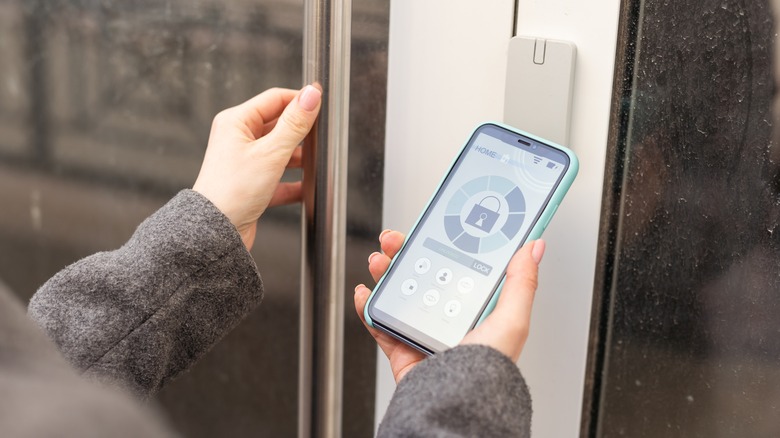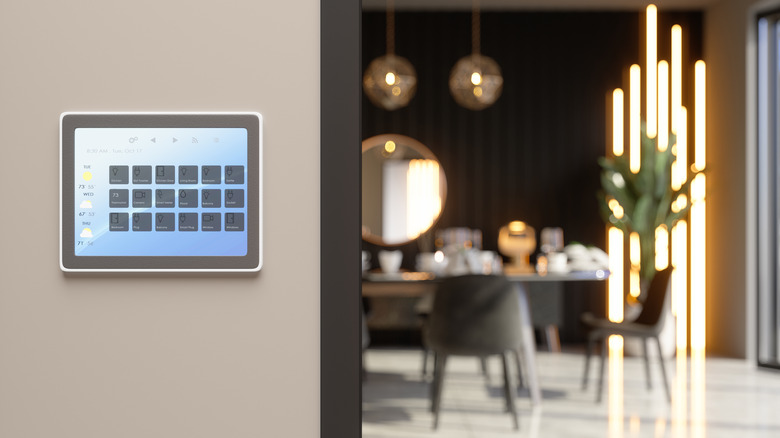What You Can Learn From HGTV Star Christina Hall's Smart Home Mistake
HGTV's Christina Hall got locked out of her $12,000,000 smart home because of a power outage, and it would be easy to conclude that she should have bought a spare key. And sure, the idea of always having physical key access to a property is a good one. But there are deeper lessons, or at least more deeply felt lessons, that tell us a few uncomfortable truths about the current state of smart home technology. Some are about locks, some about the technology in general, and all of it is a little unsettling.
Smart locks have a lot of potential to make homes both more livable and secure. They can protect our space with biometrics, manage and track access, and provide better accessibility on a number of levels. If you've been wondering whether smart locks are worth the hype, unfortunately (so far, anyway) these benefits don't make up for their shortcomings so far. You might be able to cope with the quirks of smart lighting or even the idiosyncrasies of the best smart toilets, but smart locks can be a serious problem. There's always been a large contingent of people skeptical of the security and efficacy of home automation technology. Information security has always been an issue, and the reason is obvious — those smartphone-controlled colorful glowing lights around your TV aren't always programmed securely. But physical security has always been taken a bit more seriously ... until now.
What might go wrong with smart ... everything
The problems with smart locks aren't numerous, but they are severe and very common. Some of them are pretty mundane, like issues with battery life causing rendering them unusable more frequently than you'd expect. Manufacturers try to counter this problem with devices that use tiny amounts of power and a system of notifications and reminders that batteries need to be replaced or charged. But it's hard not to see those measures as kicking the can down the road while passing the buck. Battery longevity is often affected by the temperature of these devices, which can get pretty extreme in the middle of winter and summer.
Worse, internal components can fail completely as the result of overheating. Then there's the risk of hacking — ever-present in smart devices — and endless, terrifying stories of lock programming that are tales of utter security failure. Firmware often gets updated too infrequently to respond to security concerns, and after a while the updates — which are very expensive for vendors to manage — disappear altogether. All of these things can, for various reasons, cause your smart locks to fail. And sometimes all it takes is for the power to go out.
What you can — and can't — do about it
There are things you can do to minimize your problems with smart locks, of course. Research any device you're considering thoroughly, focus on newer options, skip products with unnecessary features that make the programming complex and risk-laden, and protect computers on the same network (or keep your lock on a separate connection). Secure your devices with strong login credentials. Make sure your Wi-Fi network is secure, and always keep a handle on user access and permissions. You should implement traditional security measures like doorbell cams, security cameras, motion sensors, and old-school security systems. Keep the firmware on your devices updated (though sometimes even this measure can create problems, like when a flawed software update accidentally bricked 500 smart locks). And of course, rekey your locks when you lose a physical door opener.
Avoid cloud- or subscription-based services, including the Amazon service that reportedly locked a man out of his home after a delivery person misheard an automated response from his doorbell cam. Instead, opt for solutions that can be fully local and don't require an internet connection. And choose open-source solutions that are maintained by a few people in a small organization over proprietary options.
Or just wait. The tech isn't mature, and physical security is too important to trust to the smart home companies making consistently bad decisions today. Stick with high-quality physical locks for now. Or at least have a spare key hidden under a rock somewhere.


